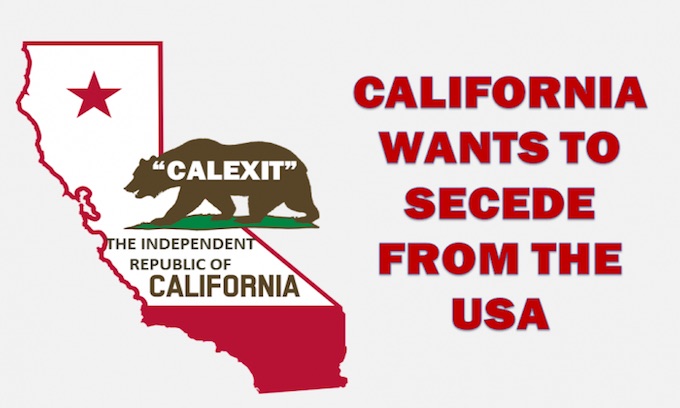California has no cannon guarding San Francisco Bay, and it’s not likely that anybody at City Hall would know how to use one if there were, but Jeff Sessions, the U.S. attorney general, nevertheless has some wise words along with his lawsuit against California’s sanctuary cities seeking to nullify federal immigration law.
“I understand that we have a wide variety of political opinions out here on immigration,” he told the California Peace Officers Association the other day in Sacramento, “but the law is on the books and its purposes are clear and just.
“There is no nullification. There is no secession. Federal law is the supreme law of the land. I would invite any doubters to go to Gettysburg, or to the tombstones of John C. Calhoun and Abraham Lincoln. This matter has been settled.”
And more’s the pity, as many a loyal Southerner might be tempted to say. California is the land that once upon a time, before political correctness imposed good manners on us all, was called “the land of fruits and nuts.” We can’t be surprised by all the nutty things that emerge from the orange groves.
Mr. Sessions, as all Southerners are, is entitled to look upon California secession talk with bemused irony. Nevertheless, the spirit of “secessh,” as it was derided more than a century ago, lives, and the 21st century “secessh” have filed papers to start the process to give California voters an opportunity in 2021 to say whether they want to leave the union.
This is the second attempt at a “Calexit,” as they call their secession talk. The first died last year when their attempt to get enough valid signatures to put the measure on the ballot fell short. A successful secession vote would instruct the state legislature to formally make, like first South Carolina and then 10 other states of the Southern persuasion, a declaration of independence from the not-so-united United States. Secessionists marched from the state attorney general’s office, where the petitions were filed, under banners declaring “It’s time for a divorce,” and “Irreconcilable Differences.”
Secession talk is not new in California. Since California joined the union in 1849 more than 200 advocacy groups have tried to compel either secession or partition, or splitting the state into several smaller states. Texas, now the second largest state by population, argues that it, unlike California, is entitled in the law to partition itself. Occasionally some unhappy Texans have talked about trying to do it. But smoke is usually good only for pipe dreams.
Secessionists are already hedging their bets on a referendum success. A Twitter robot linked to Russians that tweeted support for California secession was among those shut down by Twitter late last year. The sponsor of the previous secession movement, one Louis Marinelli, trashed his movement with an admission that he was living in Russia at the time. Drop-out or not, he was present when the new and improved secessionists filed their petitions last week.
There’s no new thing under the sun, as the Bible book of Ecclesiastes, tells us. Some of the complaints of the Californians evoke a faint echo of the past. South Carolina declared as early as 1832, barely a half century after the founding of the republic, that tariffs enacted in 1828 were unconstitutional, and John C. Calhoun warned that any federal attempt to use force to collect the money would lead to South Carolina secession.
Nothing so trifling as tariffs animates secession talk today. The issue today is whether the states, or their cities, should be required to notify the federal government and its immigration agencies, when it is about to release illegal aliens held in their jails or prisons. A new California law prohibits the state from sharing “information with federal officers about criminals or suspects unless they have been convicted of serious crimes.” California wants to prevent deportation of felons for violation of federal law.
The Civil War is ancient history now, accessible mostly to Americans who can read and is thus of little interest to many Americans. No one expects warfare between the United States and one of its daughters, but re-litigating the Late Unpleasantness, as it was called in quaint Southern parlors once upon a time, would be more than interesting.
In the chance that California secessionists succeed, and there’s no Abraham Lincoln to step forward to “save the union,” someone would owe an apology to Robert E. Lee (and should restore those statues at once). If nothing recedes like success, we can look to the past to see that nothing recedes like an attempt to secede, either. It’s too soon to dig up Confederate money.
• Wesley Pruden is editor in chief emeritus of The Times.
© Copyright (c) 2018 News World Communications, Inc.
—-
This content is published through a licensing agreement with Acquire Media using its NewsEdge technology.




















Recent Comments